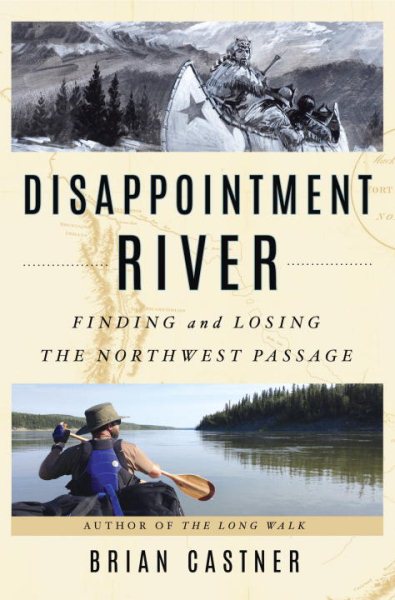By Boyce Upholt. Special to the Clarion-Ledger Sunday print edition (March 25)
 The modern explorer has to live with a simple truth: there is nowhere left that has not already been observed. Though that disappointment can also be a gift.
The modern explorer has to live with a simple truth: there is nowhere left that has not already been observed. Though that disappointment can also be a gift.
In 2016, the writer Brian Castner canoed the length of the Mackenzie River, the longest in Canada. He was—quite intentionally—following in the footsteps of the river’s namesake, Alexander Mackenzie.
In 1789, the Scottish explorer traveled its length in search of the fabled Northwest Passage. I’ve read about Mackenzie before, but somehow no image of the man and his history has ever stuck. In Canada, meanwhile, Mackenzie is a minor national figure, the namesake for not just the river, but schools and towns.
A few years after his river quest, Mackenzie successfully crossed North America east to west, beating Lewis and Clark by more than a decade. (The American explorers carried a copy of Mackenzie’s book as a guide.)
The result of Castner’s trip is Disappointment River: Finding and Losing the Northwest Passage, a rollicking read that, in alternating chapters, sets the writer’s adventures against Mackenzie’s expedition.
The remarkable geography of that river—which, like Castner, I will henceforth call the Deh Cho, in deference to the indigenous people who knew it long before Mackenzie’s “discovery”—are reason enough to read this book.
The Deh Cho, the thirteenth-longest river in the world, is the northern answer to the Mississippi, and drains a basin almost nearly as large. Wide and turbid, it winds past mountains, through tundra, across vast Arctic swamps. Inuit and Dene villages hug its shores.
For most of us, I have to think, this river is terra incognita. It’s rarely mentioned in the news, and impossible to observe on Google Street View. As Castner puts it, it’s “a place you have to see in person if you want to see at all.”
But Castner’s words are the next best thing, and they will be a delight to any armchair explorer. Frankly, I found the river more compelling than Mackenzie himself. Castner spends nearly half of the book getting us up to speed on the explorer—his youth, his rise in the fur trade, etc.—and it’s all well-told and useful.
But it’s something of a relief when Mackenzie finally embarks on the Deh Cho; now Castner can, too. His taut descriptions of his travel are by far the book’s highlight.
But both stories are necessary, as the book’s strongest message is delivered in its comparisons. Mackenzie, at the mouth of Deh Cho, found a wall of impenetrable ice. Thanks to a changing climate, Castner finds none at all. The river’s wildness persists, but today it’s pockmarked with gritty towns devoted to extracting oil and metals from the earth.
Mackenzie wouldn’t blink these such developments. He was, in Castner’s words, “the product of an age”: explorers in his era weren’t seeking wilderness adventure; discovery, for them, was a way to drag commerce and capitalism forward in the world.
Castner, meanwhile, knows he’s discovering nothing, except maybe himself. But that humility is freeing. Every acre of land on this continent has been known to someone, and for thousands of years. The only story left for explorers is the one most worth telling: why and how a place so vibrant can be overlooked by so much of the world.
Boyce Upholt is a freelance writer based in the Mississippi Delta. He is at work on a nonfiction book about the Mississippi River, and a novel about the aftermath of the Lewis and Clark expedition.
Brian Castner will be at Lemuria on Wednesday, March 28, at 5:00 to sign and read from Disappointment River. This book is a 2018 selection for our First Editions Club for Nonfiction.


Comments are closed.